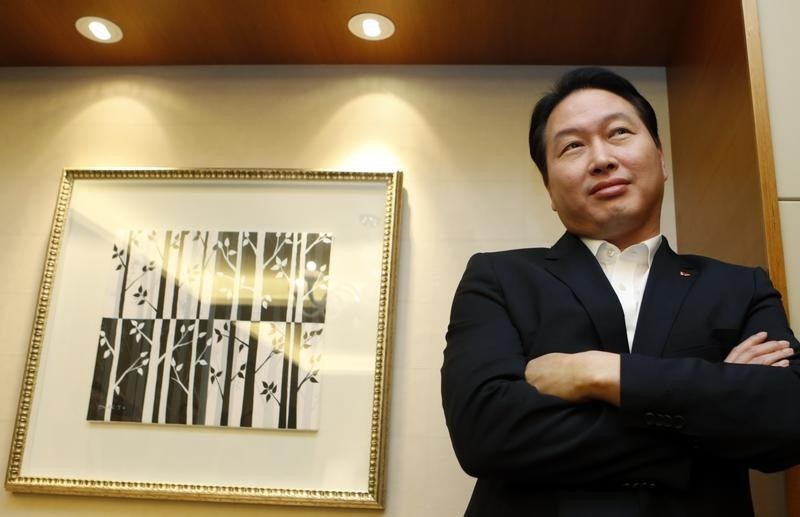SEOUL (Reuters) - South Korean president Park Geun-hye on Thursday gave pardons to 6,527 people, including the chairman of the country's third-largest conglomerate, the SK Group, citing, in part, Seoul's efforts to revive a sputtering economy.
The pardons announced by the justice minister come amid South Koreans' growing discontent over the conduct of the family-run conglomerates, known as chaebol, that dominate Asia's fourth-largest economy.
The heavy-handed conduct of South Korea's rich and powerful made headlines worldwide with last December's "nut rage" case, after the daughter of an airline chairman took offence at the way she had been served macadamia nuts.
SK Group Chairman Chey Tae-won has been in jail since January 2013, serving one of the longest terms ever given to a chaebol boss.
The order to free Chey and other business leaders aims "to give them a chance to develop the country's economy," the justice ministry said in a statement.
President Park told a cabinet meeting, "The pardons have included some businessmen, for the tasks we face, economic revival and job creation."
An SK Group spokeswoman said Chey's pardon would resolve a management vacuum and help the conglomerate focus on efforts to rejuvenate the economy.
A Gallup Korea poll in late July showed 54 percent of respondents opposed special pardons for chaebol owners, while just 35 percent backed them.
The public is unlikely to be convinced by the government's rationale for the pardons, said Chung Sun-sup, head of corporate analysis firm Chaebul.com, adding that they could undermine trust in the government.
"It doesn't make sense to be calling for reforms by the chaebol and, at the same time, to be lenient towards the wrongdoing of the heads of those chaebol," he said.
South Korea has a long history of pardoning convicted chaebol bosses or suspending their sentences.
Over the years, the heads of the Samsung (LONDON:0593xq), Hyundai Motor, SK and Hanwha chaebol have been convicted of crimes but received suspended sentences, and later, presidential pardons.
In her 2012 presidential campaign, Park said she would "strictly limit" pardons for powerful business tycoons.
But analysts say that agenda has been derailed by a sluggish economy and the reliance of her ruling Saenuri party on support from high-income conservative earners.
Many South Koreans are unhappy that chaebol founding families can control massive corporate groups with small direct stakes, using a complicated structure of cross-shareholdings.
Anti-chaebol sentiment was whipped up by a public feud between the two sons of the 92-year-old founder of Lotte Group, South Korea's fifth-largest conglomerate.

An $8-billion merger of two Samsung Group companies also touched a nerve, as critics saw it as aimed at smoothing a leadership transfer for the founding Lee family.